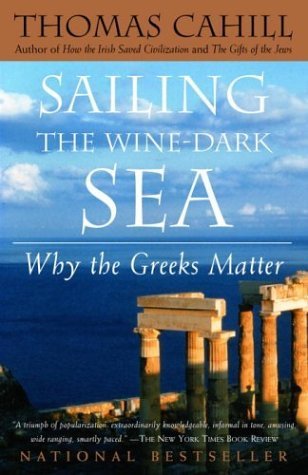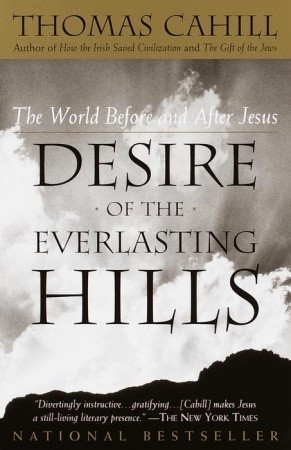
The Gifts of the Jews: How a Tribe of Desert Nomads Changed the Way Everyone Thinks and Feels
Book Description
Imagine a tribe of desert nomads whose ideas would rip through the fabric of civilization, sparking revolutions in thought, ethics, and belief systems. In "The Gifts of the Jews," Thomas Cahill unveils the profound impact of this community, revealing how their unique perspectives on morality, individuality, and the divine have shaped the core of Western consciousness. As ancient stories intertwine with powerful concepts of justice and mercy, a legacy emerges that still influences how we think and feel today. What if the key to understanding our modern selves lies within the sands of history?
Quick Book Summary
"The Gifts of the Jews" by Thomas Cahill explores the revolutionary contributions of the Jewish people to Western civilization. Drawing from biblical history, Cahill highlights how ancient Hebrews introduced groundbreaking ideas such as monotheism, linear historical consciousness, and the concept of individual moral responsibility. Through storytelling, he demonstrates the shift from cyclical ancient worldviews to a progressive, future-oriented culture. Cahill argues that Jewish thought planted the seeds for personal freedom, justice, and compassion—fundamental aspects of how modern people view themselves and society. By tracing the journey from Abraham to the later prophets, the book reveals how a small tribe of desert nomads profoundly transformed the world’s ethical landscape.
Summary of Key Ideas
Table of Contents
The Invention of Historical Progress and Linear Time
Cahill begins by contrasting the cyclical worldview of ancient Mesopotamian civilizations with the innovative approach brought forth by the Hebrews. Where other cultures saw history as endlessly repeating, the Jews introduced a notion of time as a forward-moving journey. This new lens allowed individuals and societies to envision progress, personal transformation, and purposeful development, fundamentally shifting humanity’s orientation toward the future.
The Birth of Monotheism and the Personal God
Central to this transformation was the Jewish embrace of one God—distinct and personally involved with humanity. Through figures like Abraham and Moses, the Jewish people forged a unique relationship with the divine, replacing the distant, arbitrary pantheons of their neighbors. This shift gave humanity a God who cared, listened, and demanded justice, laying the groundwork for later religious and philosophical systems rooted in ethical monotheism.
The Emergence of Individual Moral Responsibility
Cahill underscores the biblical introduction of individual moral responsibility, illustrating how ancient Jews departed from a collective identity determined by fate or social status. Stories such as Abraham’s willingness to argue with God and the moral quandaries faced by Moses and others exemplify the importance placed on personal conscience and choice. The Hebrew scriptures emphasized each person’s capacity—and obligation—to make ethical decisions, shaping notions of free will and personal accountability.
Revolutionizing Justice, Compassion, and Social Ethics
The Jewish scriptures, recounting narratives of exodus, exile, and liberation, also seeded revolutionary concepts of justice, mercy, and compassion. The laws given in the Torah, and prophetic calls for justice, offered a template for societies that prioritize the dignity and welfare of all, especially the vulnerable. These ideals challenged the hierarchical and often ruthless structures of surrounding empires and continue to inspire reforms in human rights and social justice.
The Lasting Legacy of Jewish Thought on Western Civilization
Finally, Cahill demonstrates how these "gifts of the Jews" became the backbone of Western civilization. Jewish concepts influenced Christianity and Islam, carried forward by prophetic traditions, and persist in secular notions of human potential and ethical responsibility. By weaving together historical analysis and narrative storytelling, Cahill reveals how the ancient Hebrews reshaped human consciousness, leaving an indelible mark on the way we interpret justice, freedom, and the meaning of life today.
Download This Summary
Get a free PDF of this summary instantly — no email required.





